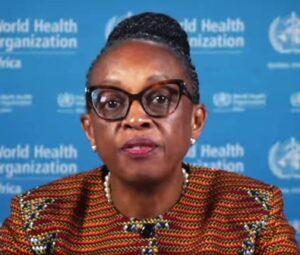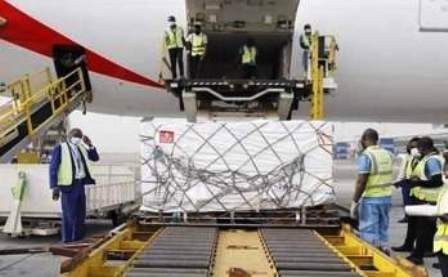
WHO Regional Director for Africa
One year since the COVAX Facility delivered the first COVID-19 vaccines to Africa, around 400 million doses have been administered – the region’s largest ever vaccine rollout in a single year.
However, vaccination rates in the continent are the lowest in the world. To help bolster uptake, World Health Organization (WHO), UNICEF, Gavi, the Vaccine Alliance, and partners are supporting mass vaccination campaigns in 10 priority countries to reach 100 million people by the end of April 2022.
“A year since the first COVAX vaccine shipments, Africa has administered nearly 400 million doses. That’s the continent’s most massive vaccine rollout for a single disease in a single year. While this is a big step forward, we need a quantum leap,” said Dr Matshidiso Moeti, WHO Regional Director for Africa. “Mass vaccination drives are one tactic which is enabling countries to speed up their rollout.”
After a fitful start following the first COVAX vaccine shipments on 24 February 2021, Africa now has a steady supply of vaccines. Ninety per cent of the total COVAX deliveries to date have been in the last six months. COVID-19 vaccine deliveries to the continent have increased by more than 100% from November 2021 to January 2022, compared with the previous three months.
COVAX deliveries account for almost two-thirds of the more than 680 million doses delivered to Africa in the past year. The African Union’s Africa Vaccines Acquisition Trust has shipped about 6% of the doses and bilateral deals account for the rest.
“Today marks an important milestone in COVAX’s journey. Over the course of one year, working closely with governments and partners, COVAX has shipped over 430 million doses to 50 African countries. The global vaccine equity gap may be closing, but there remains so much work to be done. In the months ahead, COVAX looks forward to supporting countries further, providing targeted and tailored support where needed and ensuring supply matches countries’ needs as they work towards their vaccination targets,” said Aurélia Nguyen, Managing Director of the Office of the COVAX Facility.
Of the 20 priority countries identified by WHO for intensified support, 10 countries are conducting the mass vaccination campaigns in a range of urban settings such as shopping centres and markets, as well as in hard-to-reach rural communities. Countries are reporting a significant rise in people vaccinated. During its two-week campaign in early February, Kenya tripled the number of vaccines it administered, compared with the two weeks prior to the start of the campaign. In Guinea Bissau around 125 000 doses were administered during a two-week campaign in February, in comparison with 11 000 in the whole of January.
UNICEF has delivered around three-quarters of all COVID-19 doses to the Eastern and Southern Africa region. Mohamed Fall, Regional Director for the world’s leading children’s agency, said, “To truly achieve vaccine equity for Africa three things need to happen: Richer countries must contribute more funding to get vaccines into arms, including by recruiting and training community healthcare workers; partners need to ensure timely and reliable delivery of vaccines; and we need to increase the innovative ways we’re seeing in bringing vaccines to the people as opposed to people to the vaccines. Governments must also continue to invest in their health systems to make them more resilient to health crises.”
So far, only 13% of Africans are fully vaccinated. Eighteen countries have vaccinated less than 10% of their population and three have vaccinated less than 1%. Twenty-nine countries have used less than 50% of their vaccine stock.
High-risk populations also remain critically underserved by vaccination programmes. In 27 countries reporting data on health worker vaccination, 33% of their health work force is fully vaccinated, and in 24 African countries reporting data on vaccination of older people, only 21% of adults over 50 years are fully vaccinated. Just 11% of people with comorbidities are fully vaccinated in 20 countries reporting that data.
WHO, UNICEF, Gavi, the vaccine alliance, and other international and local partners are supporting countries to scale up COVID-19 vaccination and have deployed 66 experts to 18 priority countries to form country support teams, with several experts on their way to two more countries.
WHO, UNICEF and other partners’ experts are working under the leadership of the ministries of health to strengthen partner coordination, logistical planning, including microplanning, closing the funding gap, tracking adverse events following immunization, as well as the management of data on vaccination uptake and vaccine stock while engaging and empowering communities.WHO held a virtual press conference today led by Dr Phionah Atuhebwe, New Vaccines Introduction Officer, WHO Regional Office for Africa. She was joined by Ms Aurélia Nguyen, Managing Director, Office of the COVAX Facility, Gavi, the Vaccine Alliance, and Mr Maksim Fazlitdinov, Social and Behavioural Specialist, UNICEF Rwanda.
Also on hand from the WHO Regional Office for Africa to respond to questions was Dr Thierno Balde, Regional COVID-19 Incident Manager

